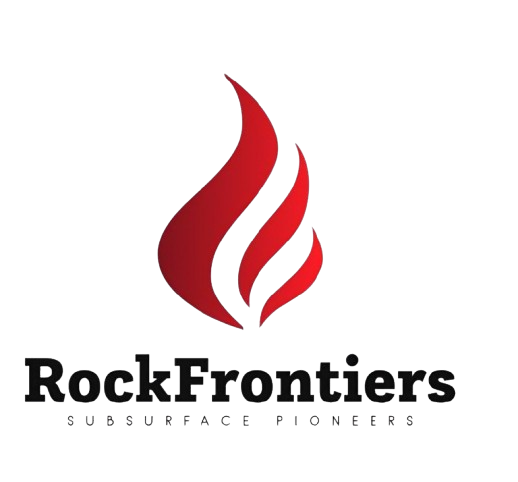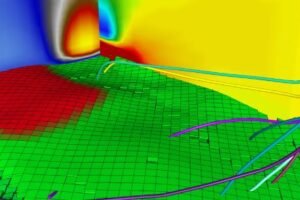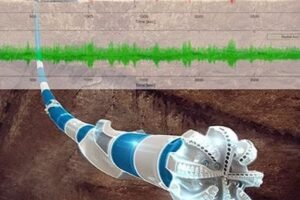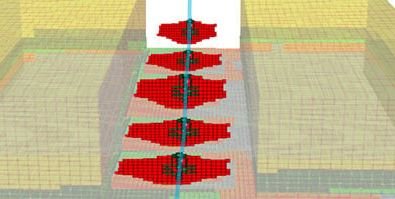🛠️ Wireline Operations and Techniques
📘 Course Description: This course provides a comprehensive understanding of wireline logging operations, tools, techniques, and safety considerations involved in open-hole and cased-hole logging. It covers both electric wireline and slickline operations used in well evaluation, intervention, and completion. Participants …
Overview
📘 Course Description:
This course provides a comprehensive understanding of wireline logging operations, tools, techniques, and safety considerations involved in open-hole and cased-hole logging. It covers both electric wireline and slickline operations used in well evaluation, intervention, and completion. Participants will gain insight into tool deployment, depth control, data acquisition, and operational best practices for optimizing logging programs and interpreting results in both exploration and production environments.
The course includes practical case studies, equipment handling procedures, risk mitigation strategies, and communication protocols between geoscientists, engineers, and service companies.
🎯 Who Should Attend:
-
Logging Engineers & Field Supervisors
-
Wireline and Slickline Operators
-
Wellsite Geologists
-
Drilling and Completion Engineers
-
Petrophysicists & Reservoir Engineers
-
Production Technologists & Operations Staff
🧾 Training Format:
-
Duration: 5 Days
-
Delivery: Classroom or Virtual
-
Methodology: Technical lectures, field videos, simulations, and case studies
-
Materials: Illustrated manuals, tool specs, HSE checklists, and job planning templates
🗓️ Detailed Daily Agenda with Time Breaks
Day 1: Introduction to Wireline Logging and Equipment
| Time | Topic |
|---|---|
| 09:00 – 09:30 | Welcome, Objectives, and Course Overview |
| 09:30 – 10:30 | Wireline Logging Basics: Electric Line vs Slickline |
| 10:30 – 10:45 | ☕ Coffee Break |
| 10:45 – 12:15 | Surface Equipment: Winches, Sheaves, Depth Encoders |
| 12:15 – 13:15 | 🍽️ Lunch Break |
| 13:15 – 14:45 | Downhole Telemetry & Cable Tension Systems |
| 14:45 – 15:00 | ☕ Coffee Break |
| 15:00 – 16:30 | Logging Truck Layout and Safety Systems |
Day 2: Open Hole Logging Tools and Operations
| Time | Topic |
|---|---|
| 09:00 – 10:30 | Open Hole Logging Objectives and Tool String Design |
| 10:30 – 10:45 | ☕ Coffee Break |
| 10:45 – 12:15 | Measurement Principles: GR, SP, Resistivity, Porosity, Sonic |
| 12:15 – 13:15 | 🍽️ Lunch Break |
| 13:15 – 14:45 | Tool Deployment Practices and Pulling Speeds |
| 14:45 – 15:00 | ☕ Coffee Break |
| 15:00 – 16:30 | Logging While Drilling (LWD) vs Wireline Comparisons |
Day 3: Cased Hole Logging and Intervention Tools
| Time | Topic |
|---|---|
| 09:00 – 10:30 | Overview of Cased Hole Logging Objectives |
| 10:30 – 10:45 | ☕ Coffee Break |
| 10:45 – 12:15 | CBL/VDL, Noise/Temperature, and PLT Logging Tools |
| 12:15 – 13:15 | 🍽️ Lunch Break |
| 13:15 – 14:45 | Perforation Systems, Explosives Safety, and Job Preparation |
| 14:45 – 15:00 | ☕ Coffee Break |
| 15:00 – 16:30 | Tractor Conveyance, Memory Logging, and Slickline Operations |
Day 4: Operational Best Practices and HSE Considerations
| Time | Topic |
|---|---|
| 09:00 – 10:30 | Logging Job Planning and Risk Assessment |
| 10:30 – 10:45 | ☕ Coffee Break |
| 10:45 – 12:15 | Depth Control, Correlation Logs, and Tool Positioning |
| 12:15 – 13:15 | 🍽️ Lunch Break |
| 13:15 – 14:45 | Tool Stuck Prevention, Fishing Techniques, Contingency Planning |
| 14:45 – 15:00 | ☕ Coffee Break |
| 15:00 – 16:30 | Radiation Safety, Explosive Transport, and Permit Systems |
Day 5: Integrated Job Execution and Final Workshop
| Time | Topic |
|---|---|
| 09:00 – 10:30 | Real-World Logging Case Studies: Open and Cased Hole |
| 10:30 – 10:45 | ☕ Coffee Break |
| 10:45 – 12:15 | Hands-On Log Planning: Tool Selection, Speed, Safety |
| 12:15 – 13:15 | 🍽️ Lunch Break |
| 13:15 – 14:45 | Team Presentation: Plan a Wireline Job with QC and Risk Notes |
| 14:45 – 15:00 | ☕ Coffee Break |
| 15:00 – 16:30 | Final Discussion, Certificates, and Wrap-Up |
Target audiences
- Reservoir Engineers, Geologists
You May Like
🛢️ Geomechanics and Rock Mechanics for Drilling Optimization
📘 Course Description: This course provides an in-depth understanding of geomechanics and rock mechanics principles as they apply to drilling optimization. It focuses on predicting and mitigating wellbore instability, mud losses, stuck pipe incidents, kicks, and well control issues. Participants …
🛢️ Introduction to Reservoir Geomechanics and Its Application
📘 Course Description: This course introduces the fundamentals of reservoir geomechanics and explores its applications throughout the lifecycle of hydrocarbon reservoirs—from drilling and production to enhanced recovery and field abandonment. Participants will gain a solid understanding of the stress-strain behavior …
🛢️ Advanced Exploration and Drilling Geomechanics
📘 Course Description: This advanced course is designed for professionals involved in exploration and drilling who require in-depth understanding of applied geomechanics. It focuses on advanced geomechanical modeling, prediction, and mitigation of wellbore instability, drilling-induced fractures, fault reactivation, and subsurface …
🪨 Introduction to Geomechanics
📘 Course Description: This foundational course introduces geoscientists, engineers, and technical professionals to the principles and applications of geomechanics in the oil & gas, mining, civil engineering, and environmental sectors. Participants will learn how rock and soil mechanical behavior affects …
🤖 Integrating AI in Workplace Safety Practices
📘 Course Description: This forward-thinking course explores how Artificial Intelligence (AI) is revolutionizing workplace safety. Participants will gain hands-on understanding of AI tools and how they can predict hazards, prevent incidents, enhance inspections, and improve emergency response. From machine learning …






